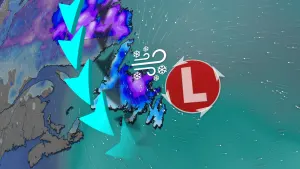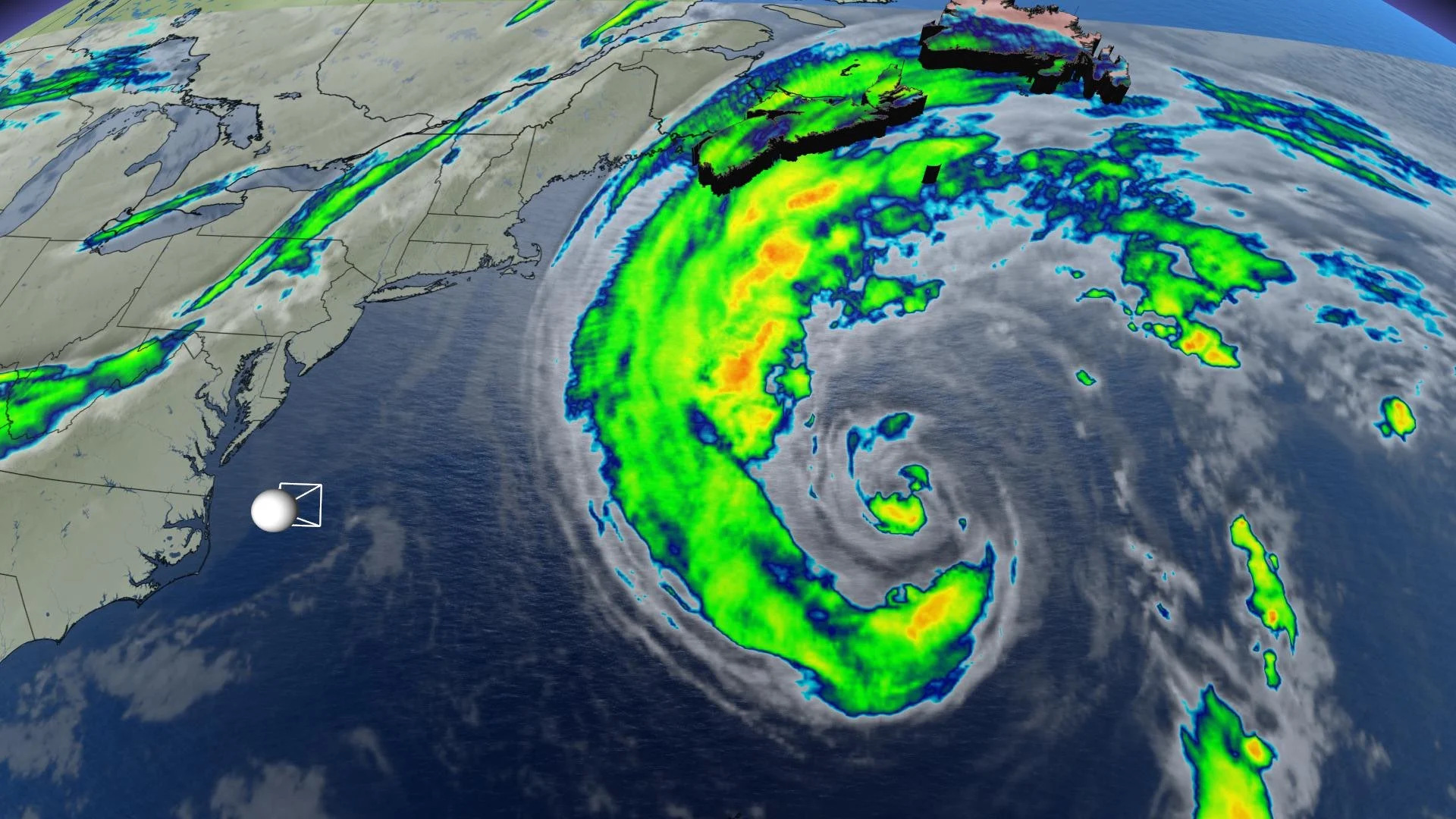
Hurricane Epsilon to bring large swells up to 7 metres to Atlantic Canada
While there are no watches and warnings in effect as Hurricane Epsilon continues its northward trek away from Bermuda, some impact is expected in Atlantic Canada this weekend as it enters Canadian waters.
While Epsilon is far from land, and has weakened, it remains a large storm. It currently boasts maximum sustained winds near 120 km/h, maintaining a low-end Category 1 hurricane status. That's after its quick intensification earlier in the week, becoming a major Category 3 hurricane on Wednesday evening.
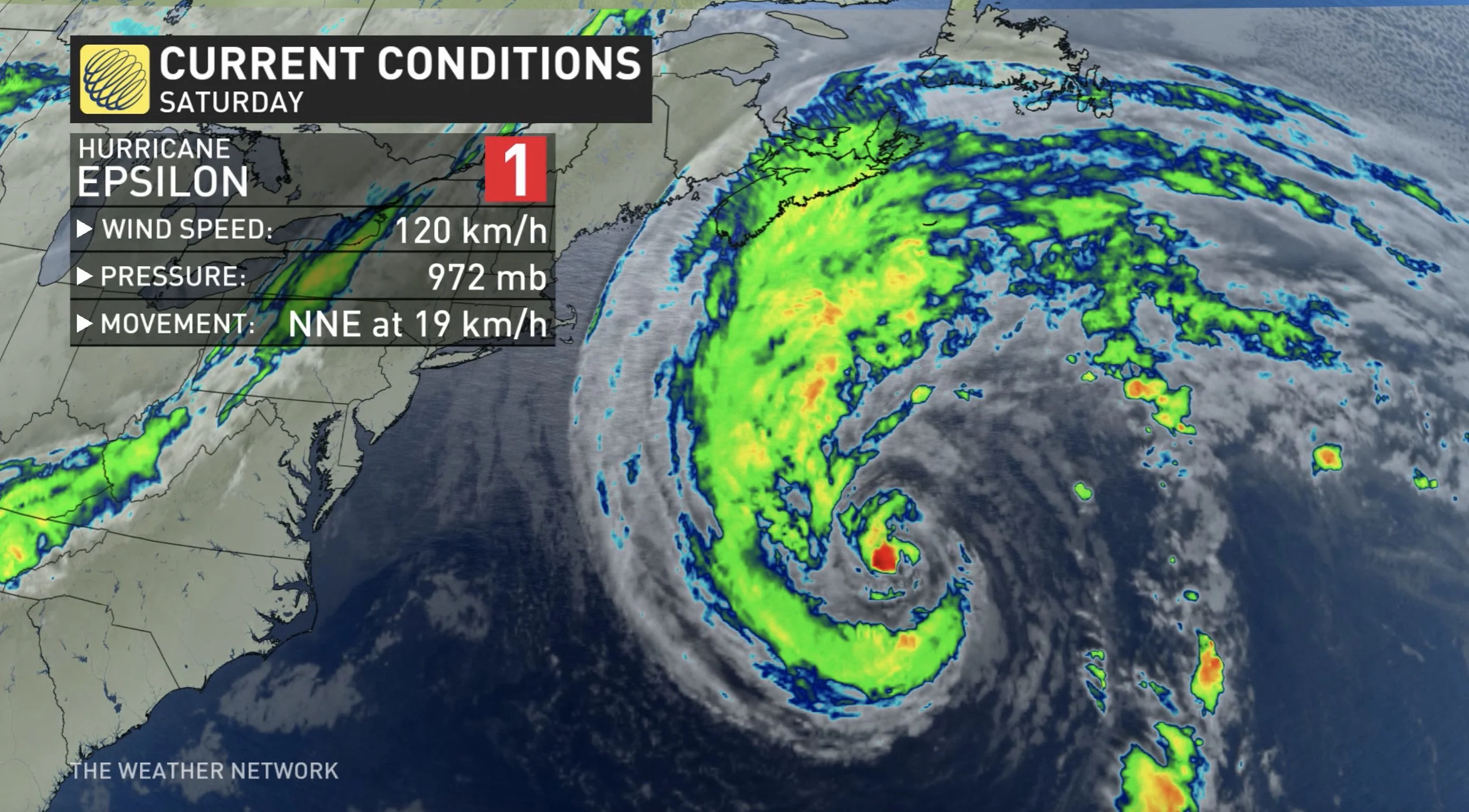
The downgraded hurricane skirted well east of Bermuda Thursday and is expected to accelerate, starting Saturday evening and continuing through early next week, as it tracks northeastward.
Now far from the Caribbean, the storm is still powerful enough to generate large swells as far away as the Bahamas, the Greater Antilles, the Leeward Islands, along with Bermuda.
The U.S. National Hurricane Center (NHC) also states large swells are expected to reach parts of the U.S. East Coast and Atlantic Canada this weekend.
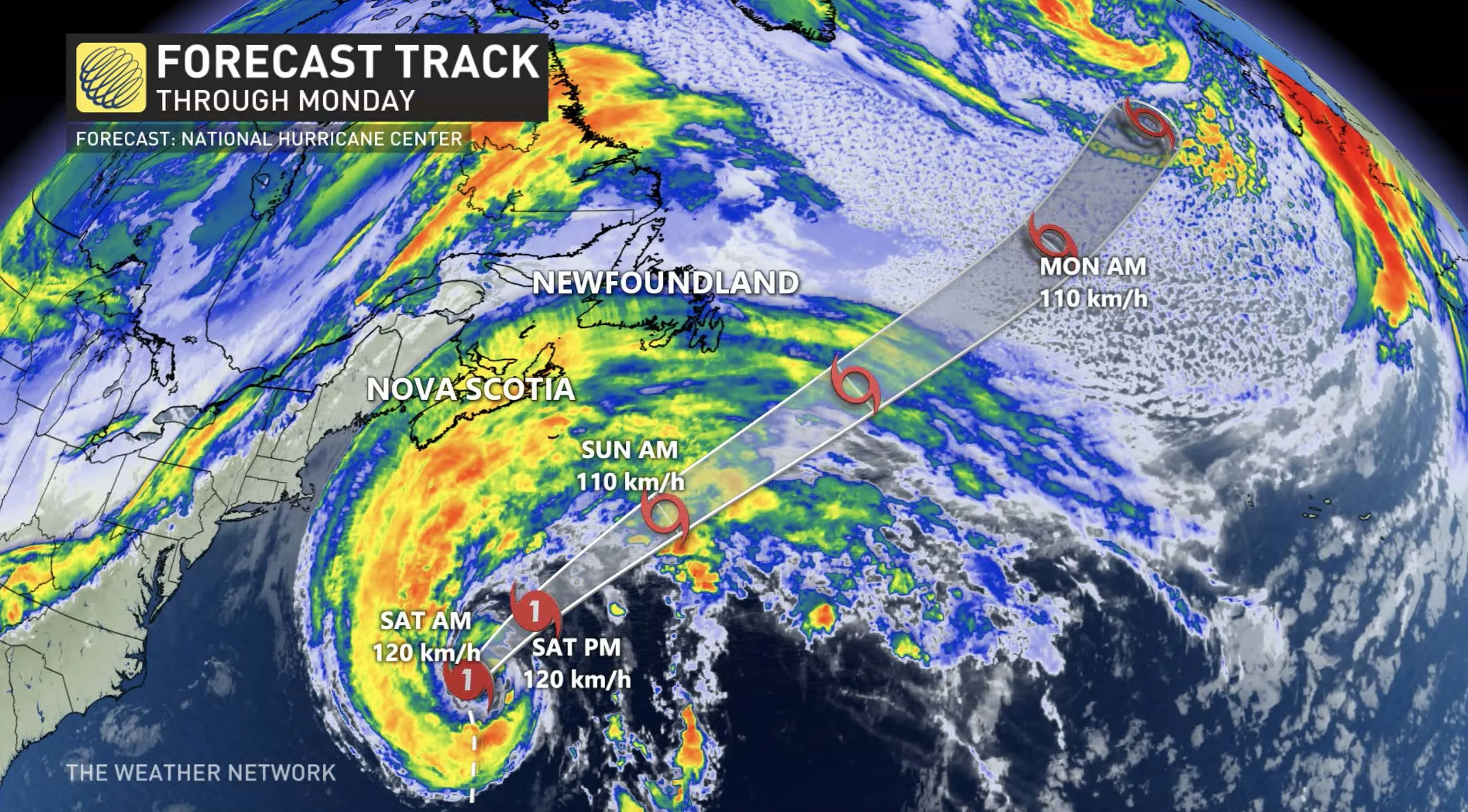
The swells will be particularly noticeable along southern coastlines of Nova Scotia and Newfoundland, beginning Saturday night, with some rain also spreading over southeastern Newfoundland Saturday afternoon, thanks to an incoming cold front.
"Tropical moisture will stream well north of the storm and interact with an approaching cold front," says Weather Network meteorologist Dr. Doug Gillham.
Rainfall totals of 30-50 mm are expected for the Avalon, while minimal accumulation is forecast west of Grand Falls-Windsor, through Sunday morning.
As well, the Avalon will see wind gusts of 50-60 km/h in the evening, while the southern Gulf will see northwesterly gusts of 50-70 km/h behind the cold front.
The Canadian Hurricane Centre says the largest waves reaching the coast are expected over the southern Avalon Peninsula, where heights of 4 to 7 metres are expected. Over the south coast of Newfoundland, from the Burin Peninsula and west to Port aux Basques, waves of 3 to 5 metres are expected. Along the Atlantic coast of Nova Scotia, waves of 3 to 4 metres are likely.
Epsilon is expected to stay far out to sea as it tracks well south of Atlantic Canada.
RECORD HURRICANE SEASON
With Epsilon, this year creeps closer to uncharted territory. The current record for the most active season was set in 2005, which went as far as Zeta, named for the sixth letter in the Greek alphabet after the traditional name list was exhausted. That storm actually developed well after the official hurricane season in late December and lingered a few days into January before finally dissipating.
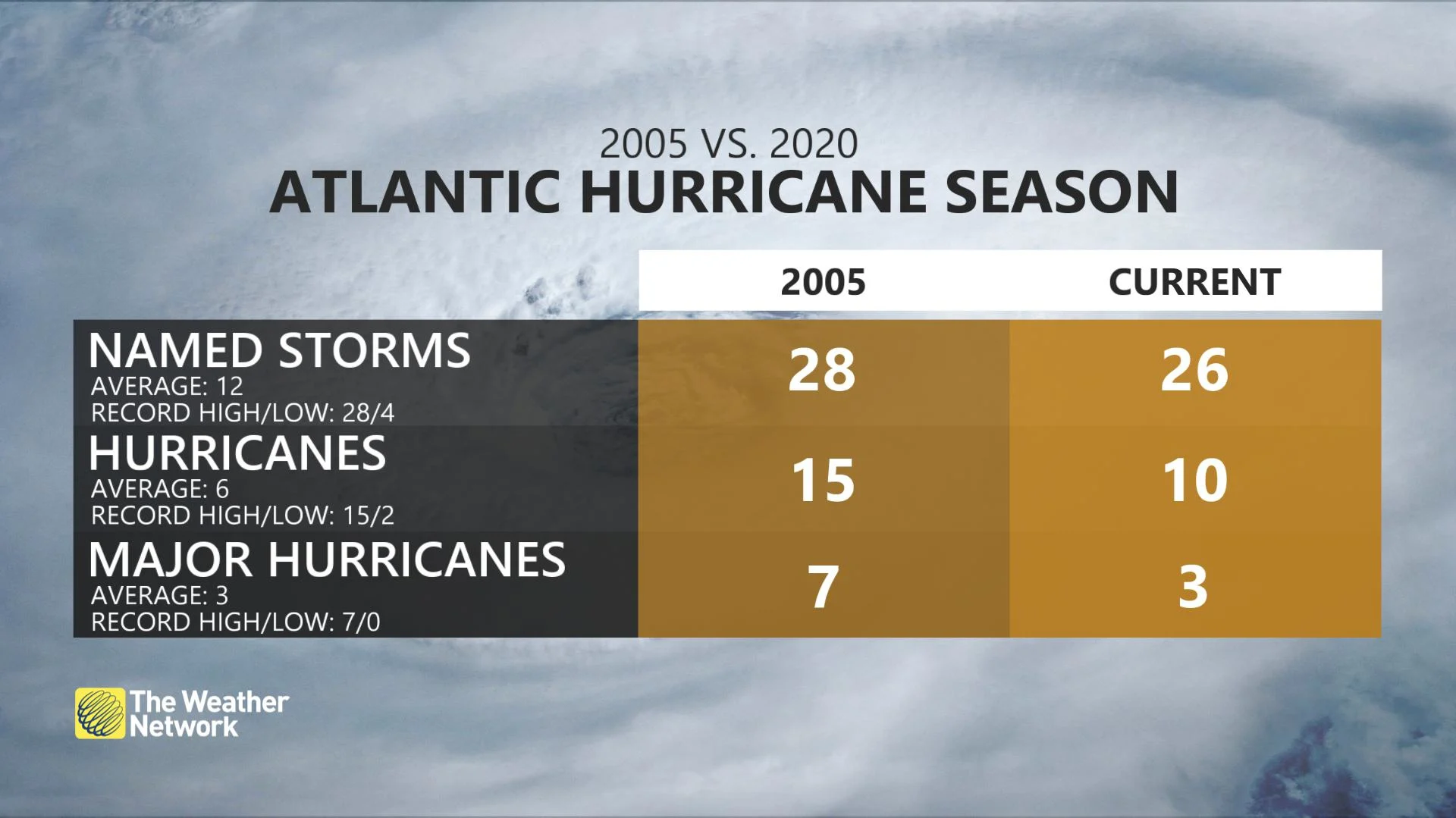
Delta, the fourth storm to be given a name from the Greek name list this year, already made landfall in Louisiana as a strong Category 2 hurricane earlier this month. It was especially notable, as it roared from a named tropical storm to Category 4 hurricane in less than two days. That made it the fastest strengthening storm since the mid 19th Century. At its peak, it was also the most powerful Greek-named storm on record.
Epsilon never made it to that strength, but it is still remarkable in that it is the furthest northeast that an Atlantic tropical cyclone has strengthened so quickly this late in the season.








